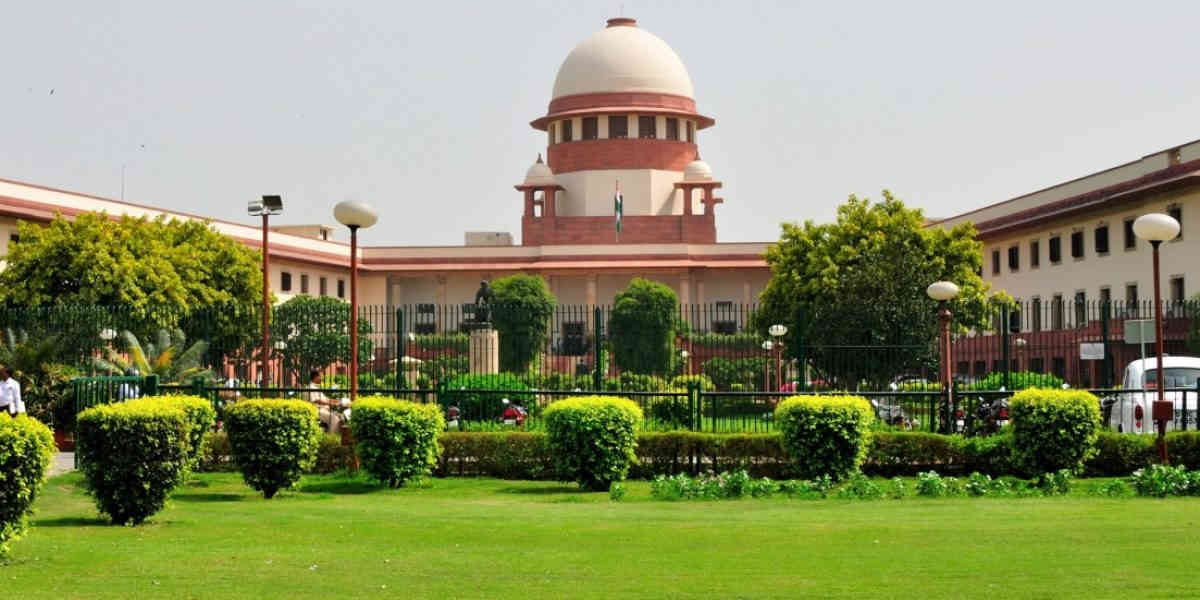
(PTI) New Delhi, Dt
Expressing concern over the "widespread misuse" of the British-era treason law, the apex court questioned why the central government did not repeal a law enacted by the British to "silence" people like Mahatma Gandhi to stifle the freedom movement. Chief Justice N.K. V. A bench headed by Ramana agreed. Judge Ramna said his main concern was the "abuse of the law". With this he sent a notice to the Center. The petitioners claim that the law restricts the fundamental right to freedom of expression.
Judges a. S. "We need answers to some questions," said a bench comprising Bopanna and Rishikesh Roy. This is the law of the British era and the British used this law to suppress the freedom movement. The law was used by the British to silence Mahatma Gandhi, Gokhale and others. Is it necessary to use this law even after 7 years of independence? Observing the widespread misuse of the sedition law, the bench also warned against the misuse of Section 4A of the Information Technology Act. The court noted that cases were filed under it even though the clause was removed a long time ago. The court also said, "This is like asking a carpenter to cut wood and he will cut down the whole forest."
The CJI said that only a factionalist could apply such a provision to stifle the voice of another group. They use this law on others when a particular party or people do not want to hear the voice of others. The bench expressed surprise at the continuation of the law even after seven years of independence and said, "We do not know why the government would take any decision in this regard." Your government has removed many meaningless laws of the British era.
The bench said it does not blame any state or central government, but unfortunately the law is widely misused and it has no accountability. Hearing by video conference, the bench said that if a police officer wanted to trap a person in a remote village of the country, he could easily harass him using this provision. The bench further said that the percentage of punishment in the treason law is also very low and a decision needs to be taken on these matters.
Attorney General K.K. Defending the law, Venugopal said the court should provide guidelines to prevent its misuse instead of repealing it. In 2012, the central government said in Parliament that it would not repeal the sedition law. This law is needed to work effectively against anti-national, terrorist elements.
Shyam Diwan, a senior lawyer representing the Editors' Guild of India, said that a separate petition was filed by journalists challenging the constitutionality of Article 12A (treason). He also demanded the formulation of guidelines to curb the abuse of the law. The bench directed one of the applicants, former Army officer Major General S.G. Referring to Wombatkar (retd), he said that he had dedicated his entire life to the nation and his intention to challenge the law could not be questioned. Wombatkar said the law is completely unconstitutional.
What is the law of treason? And when did it happen?
Under the non-bailable provision of Section 13A of the Indian Penal Code (IPC), the law may apply to any person in India who incites rebellion against the government established by law through words, writings, signs, visual media or any other means. Apart from this, if a person inadvertently associates or cooperates with an anti-national organization in any way, he also falls under the scope of treason. This law of the British era was enacted in 190. A person convicted of treason cannot apply for a government job and his passport is also revoked. The law carries a maximum sentence of three years to life imprisonment. It also provides for penalties.
Cases of treason increased in Modi government
The law of treason empowers the government to maintain peace and law and order in society. However, the petitioners, citing a report, claimed that there were 10 cases of treason in 2010, which increased to nine in 2020. In the year 2020, 9 journalists were charged with treason. In a written reply to a question, it was stated in the Rajya Sabha that in the year 2020 alone, more than 50 cases of treason were registered. During 2013, 4 cases of treason were registered in different parts of the country, out of which 4 people were arrested. Climate activist Disha Ravi, Dr. From Kafil Khan to Shafura Zargar, several people were arrested on charges of treason. Recently, the Supreme Court dismissed a treason case filed against senior journalist Vinod Dua.
A sharp knock to the center of the Supreme
- Your government has abolished many laws of the time of the British.
- Only a sectarian can bring such a law to stifle the voice of another group.
- A party uses this law when it does not want to hear the voice of others.
- This is like asking a carpenter to cut wood and he will cut down the whole forest.
- No police can use this law to trap anyone.
Comments
Post a Comment
What you think about this NEWS please post your valuable comments on this article, we will immediately publish your comments on this page